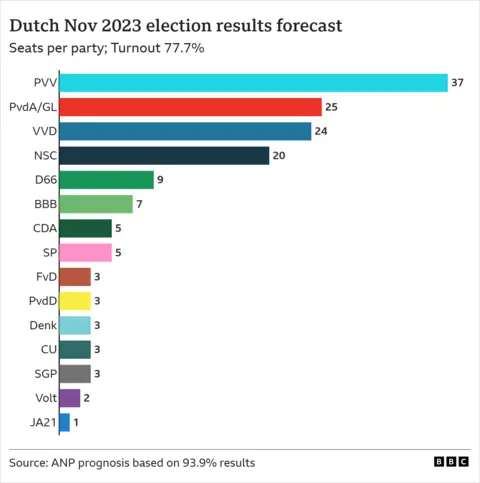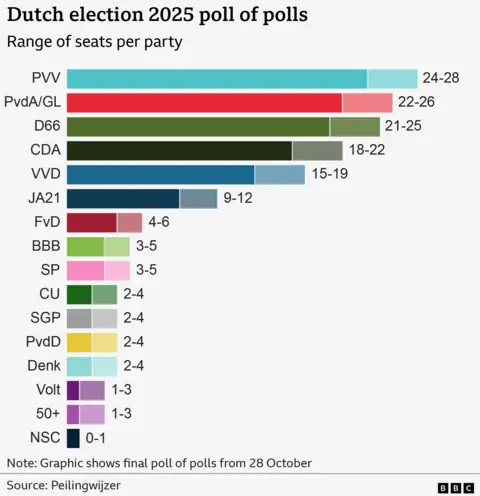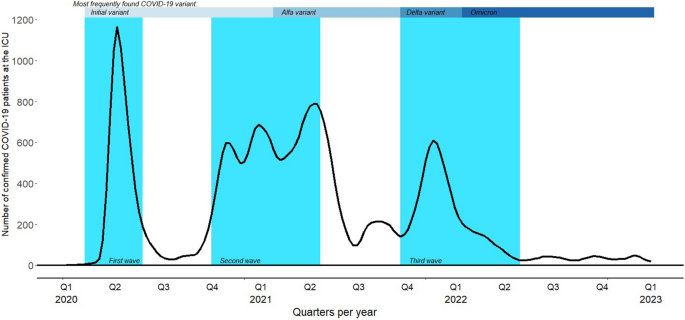
Introduction to Geert Wilders
Geert Wilders is a prominent figure in Dutch politics, having been active for over two decades. As the founder of the Party for Freedom, he has built a reputation for his strong views on Islam and immigration. His party's platform is centered around limiting immigration, promoting Dutch culture, and addressing what he perceives as the "Islamization" of the Netherlands.
Wilders' rise to prominence can be attributed to his ability to tap into the concerns of many Dutch citizens who feel that their country is being overrun by immigrants and that their culture is under threat. His party has performed well in various elections, with the most recent example being the 2021 general election, where the Party for Freedom won 17.8% of the vote, making it one of the largest parties in the Dutch parliament. Some of the key issues that Wilders and his party focus on include:
- Limiting immigration from non-Western countries
- Promoting Dutch culture and identity
- Addressing the perceived threat of Islamization
- Reducing the influence of the European Union on Dutch politics
Wilders' popularity has been a subject of controversy, with some supporting his views and others criticizing them as divisive and extremist. According to a 2020 survey, 45% of Dutch citizens view Wilders as a "threat to democracy," while 31% see him as a "necessary voice" in Dutch politics. To better understand the complexities of Wilders' ideology and its implications, readers can:
* Research the Party for Freedom's official platform and policies
* Examine the latest election results and opinion polls to gauge public sentiment
* Engage with diverse perspectives on social media and online forums to foster a deeper understanding of the issues at hand
For those looking to stay informed about Dutch politics and the rise of populist movements in Europe, it is essential to follow reputable news sources and fact-check information carefully. Some recommended sources include the Dutch News, Reuters, and the European Union's official website. By staying up-to-date on the latest developments and engaging with a range of viewpoints, readers can develop a nuanced understanding of the complex issues surrounding Geert Wilders and his party.

Rise and Fall of Popularity
The trajectory of Geert Wilders' Party for Freedom is a fascinating case study in the ephemeral nature of political popularity. In the 2017 Dutch general election, the party gained significant traction, securing 20 seats in the Dutch parliament and becoming the second-largest party. This meteoric rise was largely fueled by Wilders' hardline stance on immigration and integration, which resonated with a sizable segment of the Dutch population.
However, since then, the party's fortunes have begun to wane. Internal conflicts and power struggles have taken a toll on the party's cohesion, while shifting public opinion on immigration and integration has eroded its support base. Some of the key factors contributing to this decline include:
- Internal party conflicts, which have led to high-profile defections and a loss of credibility
- Shifting public opinion on immigration and integration, with many voters increasingly embracing more moderate and inclusive policies
- The rise of alternative right-wing parties, which have siphoned off support from the Party for Freedom
According to recent polls, Wilders' party may struggle to replicate its 2017 performance in upcoming elections. A survey conducted in 2022 found that the party's support had declined by 5 percentage points, with only 12% of respondents indicating they would vote for the Party for Freedom.
For politicians and parties seeking to maintain their popularity, there are several key takeaways from Wilders' experience. Firstly, it is essential to stay attuned to shifting public opinion and adapt policies accordingly. Secondly, internal party cohesion is crucial, and leaders must work to prevent conflicts and defections. Finally, being responsive to the needs and concerns of voters is vital, rather than relying on a single issue or ideology. By heeding these lessons, politicians can build a more sustainable and resilient support base, and avoid the pitfalls that have beset Wilders' party.

Impact of COVID-19 on Dutch Politics
The COVID-19 pandemic has significantly altered the Dutch political landscape, with the government's response to the crisis being a pivotal issue in the upcoming election. As of 2022, a survey conducted by the Dutch newspaper, De Telegraaf, found that 60% of respondents believed the government's handling of the pandemic would influence their voting decision. This highlights the importance of the government's pandemic response in shaping the electoral outcome.
One of the key figures in Dutch politics, Geert Wilders, has been vocal in his criticism of the government's pandemic response. However, his own party's stance on the issue has been unclear, which may alienate some voters. For instance, Wilders' party, the Party for Freedom (PVV), has been ambiguous about its position on vaccine mandates and lockdown measures. This lack of clarity may deter voters seeking a clear and consistent policy on the pandemic. Some of the concerns surrounding Wilders' party include:
- Lack of transparency in their pandemic response plan
- Unclear stance on vaccine mandates and lockdown measures
- Potential inconsistency in their policy on economic support for affected businesses
The pandemic has also driven a significant shift towards online political engagement in the Netherlands. According to a report by the Dutch Ministry of the Interior, the number of online political events and webinars increased by 300% in 2020 compared to the previous year. This trend is expected to continue, with parties adapting their campaign strategies to reach voters through digital channels. To effectively engage with voters online, parties should consider the following tips:
- Utilize social media platforms to share clear and concise policy information
- Host virtual town halls and Q&A sessions to foster direct interaction with voters
- Leverage data analytics to better understand voter concerns and preferences
For readers seeking to stay informed about the evolving Dutch political landscape, it is essential to follow reputable news sources and fact-check information before sharing it on social media. Additionally, voters can take the following steps to make their voices heard:
- Register to vote in the upcoming election
- Participate in online political discussions and forums
- Contact local representatives to express concerns and provide feedback on pandemic response policies
By staying engaged and informed, Dutch citizens can play a crucial role in shaping the country's political future and ensuring that their voices are heard in the post-pandemic era. As the election approaches, it will be essential to monitor the government's pandemic response and the opposition's proposals, as these factors will significantly influence the electoral outcome.

Future of Dutch Politics and Wilders' Role
The Dutch political landscape is undergoing a significant transformation, with various parties and leaders jockeying for position. According to recent polls, the People's Party for Freedom and Democracy (VVD) and the Party for Freedom (PVV) led by Geert Wilders are among the top contenders. As the country navigates complex issues like immigration, integration, and economic growth, the role of key players like Wilders will be crucial in shaping the future of Dutch politics.
One of the key factors influencing the future of Dutch politics is the rise of populist and nationalist movements. Wilders' PVV, for instance, has been a significant force in Dutch politics, with its stance on issues like immigration and Islam. The party's popularity can be attributed to its ability to tap into the concerns of ordinary citizens, who feel that the traditional parties are out of touch with their needs. Some of the key issues that will shape the future of Dutch politics include:
- Immigration and integration: The Netherlands has struggled to integrate its immigrant population, with many feeling that the current policies are inadequate.
- Economic growth: The country's economy has been sluggish, with many calling for reforms to stimulate growth and create jobs.
- European Union: The Netherlands' relationship with the EU is also a contentious issue, with some calling for a referendum on the country's membership.
Despite the uncertainty surrounding Wilders' role, it is clear that he will remain a significant figure in Dutch politics. His party has been a major force in shaping the national debate on key issues, and his influence is unlikely to wane anytime soon. In fact, recent data suggests that the PVV has maintained a significant level of support, with around 10% of voters indicating that they would support the party in the next election. For readers looking to stay informed about the latest developments in Dutch politics, here are some practical tips:
* Stay up-to-date with the latest news and analysis from reputable sources, such as the Dutch News or the Netherlands Times.
* Follow key politicians and parties on social media to get a sense of their policies and ideologies.
* Engage with others in online forums or discussion groups to gain a deeper understanding of the issues and perspectives shaping Dutch politics.
As the Dutch political landscape continues to evolve, it is essential for readers to remain informed and engaged. By staying up-to-date with the latest developments and analyzing the key issues and players, individuals can gain a deeper understanding of the complex forces shaping the country's future. Ultimately, the future of Dutch politics will depend on the ability of its leaders to navigate the complex challenges facing the country and to build a more inclusive and prosperous society for all.

Frequently Asked Questions (FAQ)
What are the main reasons for Geert Wilders' declining popularity?
Internal party conflicts have significantly contributed to the decline in Geert Wilders' popularity. The Party for Freedom (PVV) has faced numerous challenges, including the departure of key members and internal disagreements over policy direction. For instance, in 2020, the party's second-in-command, Fleur Agema, announced her departure, citing differences with Wilders over the party's stance on issues like climate change and healthcare. This internal turmoil has led to a perception of instability and disorganization within the party.
The shifting public opinion on immigration and integration has also played a crucial role in Wilders' declining popularity. According to a recent survey conducted by the Dutch polling agency, Ipsos, in 2022, 60% of respondents believed that immigration had a positive impact on the Dutch economy, up from 40% in 2018. This shift in public opinion has made it challenging for Wilders to maintain his hardline stance on immigration, which was once a key aspect of his appeal. Some of the key factors contributing to this shift include:
- Increased awareness of the economic benefits of immigration
- Growing recognition of the importance of diversity and inclusion
- Changing demographics and the rise of a more progressive and tolerant younger generation
The COVID-19 pandemic has further exacerbated the decline in Wilders' popularity, as the Dutch public has become increasingly focused on issues like healthcare, economic recovery, and social welfare. The pandemic has highlighted the need for effective governance, cooperation, and evidence-based policy-making, all of which are areas where Wilders' party has been criticized for being lacking. To regain popularity, politicians like Wilders would be well-advised to:
- Engage in constructive dialogue with other parties and stakeholders
- Develop and promote evidence-based policies that address the concerns of a broad range of voters
- Foster a more inclusive and tolerant public discourse, recognizing the value of diversity and the importance of social cohesion
In terms of practical advice for readers, it is essential to stay informed about the complex issues shaping Dutch politics and to critically evaluate the policies and rhetoric of politicians like Wilders. By doing so, voters can make more informed decisions and demand more effective and responsible leadership from their elected representatives. According to recent data from the Dutch electoral council, voter turnout has increased significantly among younger voters, with 70% of 18-24-year-olds casting their ballots in the 2021 general election. This trend suggests that the future of Dutch politics will be shaped by a more engaged and demanding electorate, one that will require politicians to be more responsive to their concerns and more accountable for their actions.
How has the COVID-19 pandemic affected the Dutch political landscape?
What are the implications of Geert Wilders not becoming the Dutch Prime Minister?






